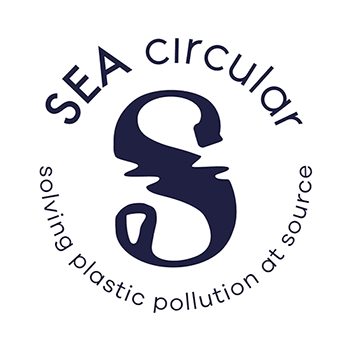
UNEP’s Regional Meeting Highlights Integration of Informal Waste Sector in ASEAN
Bangkok, 18 July 2024
A recent online regional meeting hosted by UNEP served as a platform to introduce their draft report, “Recognition, Inclusion, and Integration of the Informal Waste and Recycling Sector: A Human Rights-Based Approach to Extended Producer Responsibility in Six ASEAN Countries.” The diverse group of attendees included representatives from the informal waste sector, private industry, NGOs, and academia.
The informal waste sector plays a critical role in ASEAN’s waste collection and recycling yet faces significant challenges. Recognizing and integrating this sector is paramount for improving plastic waste management and fostering inclusive systems that prioritize labor rights, health, equity, and environmental sustainability. Developed under the SEA circular project, the report explores how Extended Producer Responsibility (EPR) policies can be a catalyst for better waste management while ensuring a just transition for the informal sector.
Key Discussions and Insights:
Kamala Ernest, SEA circular project coordinator at UNEP, opened the webinar by outlining the event’s objectives and highlighting the importance of integrating informal waste pickers. She noted, “Globally, around 15-20 million people are engaged in informal waste management. Recognizing and integrating the informal waste sector is essential for enhancing plastic waste management and ensuring a just and inclusive transition.”
Representatives from Ouroboros, Ali Syed and Shiza Aslam, discussed the integration challenges faced by informal waste pickers in ASEAN and highlighted successful strategies from around the world that could be adapted to the region. Francesca Montevecchi, a Circular Economy expert at UNEP, then introduced the report, providing a detailed overview of the research methodology, key findings, and recommendations for incorporating informal waste pickers into EPR systems using a human rights-based approach.
Participants engaged in a dynamic open discussion, sharing insights and feedback on the report. Participants agreed on the proposed recommendations, meanwhile emphasized the need to prioritize these recommendations, enforce long-term commitments with strict laws, and ensure policy support for successful implementation. Some participants also suggested broadening the survey to include more waste pickers’ opinions.

Moving Forward
The regional meeting successfully brought together a diverse group of stakeholders to discuss the crucial issue of integrating the informal waste sector into formal waste management systems across ASEAN. The valuable insights and feedback gathered will inform the finalization of the report and guide future actions to promote inclusive and sustainable waste management practices throughout the region.
About SEA circular project
The SEA circular project – Reducing marine litter by addressing the management of the plastic value chain in Southeast Asia is implemented by the UNEP Regional Office for Asia and the Pacific and the Coordinating Body on the Seas of East Asia (COBSEA), with funding support from the Government of Sweden. SEA circular aims to reduce and prevent plastic pollution and its impact by working with governments, businesses, civil society, academia, and international partners. The initiative promotes market-based solutions and enabling policies to transform plastic value-chain management, strengthens the science base for informed decision making, creates outreach and awareness. The project leverages COBSEA’s regional mechanism to tackle the transboundary challenge of marine litter in a harmonized manner.
Contact Us
Website: www.sea-circular.org
Email: sea-circular@un.org
news

